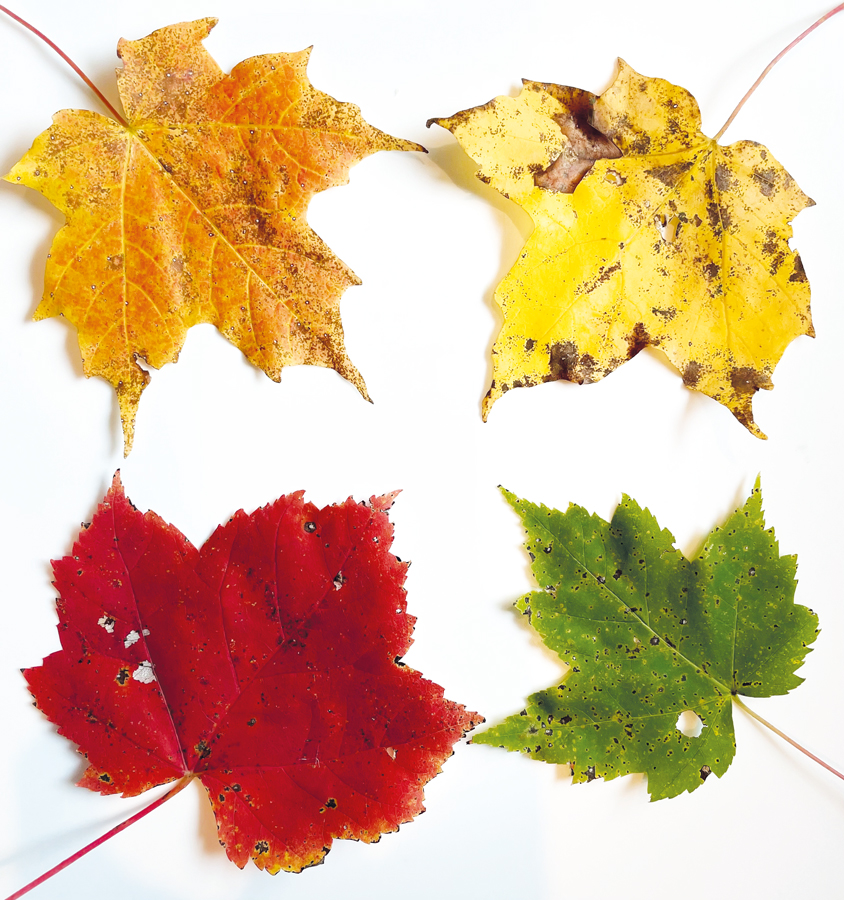Losing it

Un texte de Sarah Cobb
Paru dans le numéro Hiver/Winter 2024-25
Publié le : 7 novembre 2024
Dernière mise à jour : 14 novembre 2024
We all have our coping mechanisms. Like the maple losing its leaves, we create a few that help us feel like we're keeping it together.
I am constantly losing things. My phone, my wallet, my list (and then my mind). I sometimes feel like I am spinning in circles, getting increasingly paralyzed and exasperated by my inability to put things down in the same place, to keep track of my stuff, to remember what I am meant to do next.
ADD (Attention Deficit Disorder) recently came onto my radar as some close relatives grappled with its challenges. The more I looked into it, aiming to guide and handhold, the closer to home the research got. It culminated in an online self-test with answers that ranged from “Rarely” to “ Yes, and it’s a major problem”.
I was genuinely surprised by the results. Do you struggle to follow through on things? Are you messy, struggle with time management, get overwhelmed by complex tasks? Do you often lose your wallet, keys, glasses? Do noises like a ticking clock make it very difficult to pay attention? YES and they are a MAJOR problem. Do you have trouble maintaining friendships? That one made me cry. A lot. I can’t count the number of friends I’ve lost because my inconstant efforts at staying in touch have, understandably, made my friends feel that I don’t value their kinship. Nothing could be further from the truth. And very little in my life makes me feel more like a loser than that.
While driving to work recently, I was admiring the magnificent fall colours splashed across the mountains. It won’t be long before they are all bare, I thought sadly, and then it occurred to me that maples are also constantly losing things.
Deciduous trees, in particular maples, are spectacularly good at getting ready for winter. During summer, the chlorophyll in their leaves sucks up the sunshine, turning it into chemical energy. The underside of the leaf does its part by sucking up carbon dioxide through little pores called stomata. Then, the leaf combines the chemical energy with the carbon dioxide and some water and turns it into carbohydrates and oxygen. The carbs are used to fuel growth or are stored in the roots and the sapwood (xylem) for later. It’s wild to think that what keeps us alive on this planet is a waste product of plants eating light.
While the stomata are open, the leaf loses water (transpires) through those littles holes. Up to 90% of the water absorbed via the roots ends up being transpired into the atmosphere. And like a straw being sucked, the empty space created by the transpiration pulls sap up the trunk, transporting up to 200 litres from root to crown. The more sunshine, the more starch the tree stores, which is why a particularly beautiful summer makes for sweeter sap the following year.
As daylight wanes in autumn, the leaves no longer efficiently photosynthesize so the tree stops sending them food. The chlorophyll slowly dies off, taking its green colour with it. Other pigments better at absorbing different wavelengths of light have, until then, been hidden by the green and they finally get their moment to shine before the leaf drops. Without leaves and transpiration, the maple is able to conserve its energy and water. Through the dark months, the tree quietly holds on to the stored carbohydrates. When the days begin to lengthen, an enzyme in the tree converts the starch grains into sucrose to power flower buds and leaf formation while the tree waits for new foliage to kick food production back into gear.
I suppose we all have our coping mechanisms. Like the maple, I have created a few that help me feel like I’m keeping it together. I lean on technology and I’ve cleverly surrounded myself with “evergreens”, people who stand by me, buffet the wind, make me feel that my foliage balances out my weaknesses.
I can’t remember the past and I can’t plan my way out of a paper bag but there are upsides. It means I am perpetually living in the present moment. And the present moment is good.
Sarah Cobb

